|
22
OCT
2023
|
|
|
|
In the wild, their eating habits include grass, tree bark and twigs. Our pets need a similar fibre-filled diet from a range of sources. Treats must only be provided in moderation, but you don’t have to go down the route of a sugary, unhealthy snack.
Treats should be packed full of fibre and should include ingredients they would find in the wild. Bunny Nature BOTANICALS consists of many unique plant, flower and herbal mixtures that was carefully developed by veterinarians. Only the best plant components, which are pure and intense in flavour, are being used.
These BOTANICALS are available in various delicious flavours that can be either fed as a snack to greatly enrich the daily diet, or it can be merged into a complete diet.
A feeding table prepared by veterinarians helps in a simple way. So: for a complete diet, take one of the varieties of BOTANICALS MAXI MIX and combine it with a BOTANICALS MID-MIX variety and feed the necessary VITAMINS as a snack.
It&ls.. [More]
|
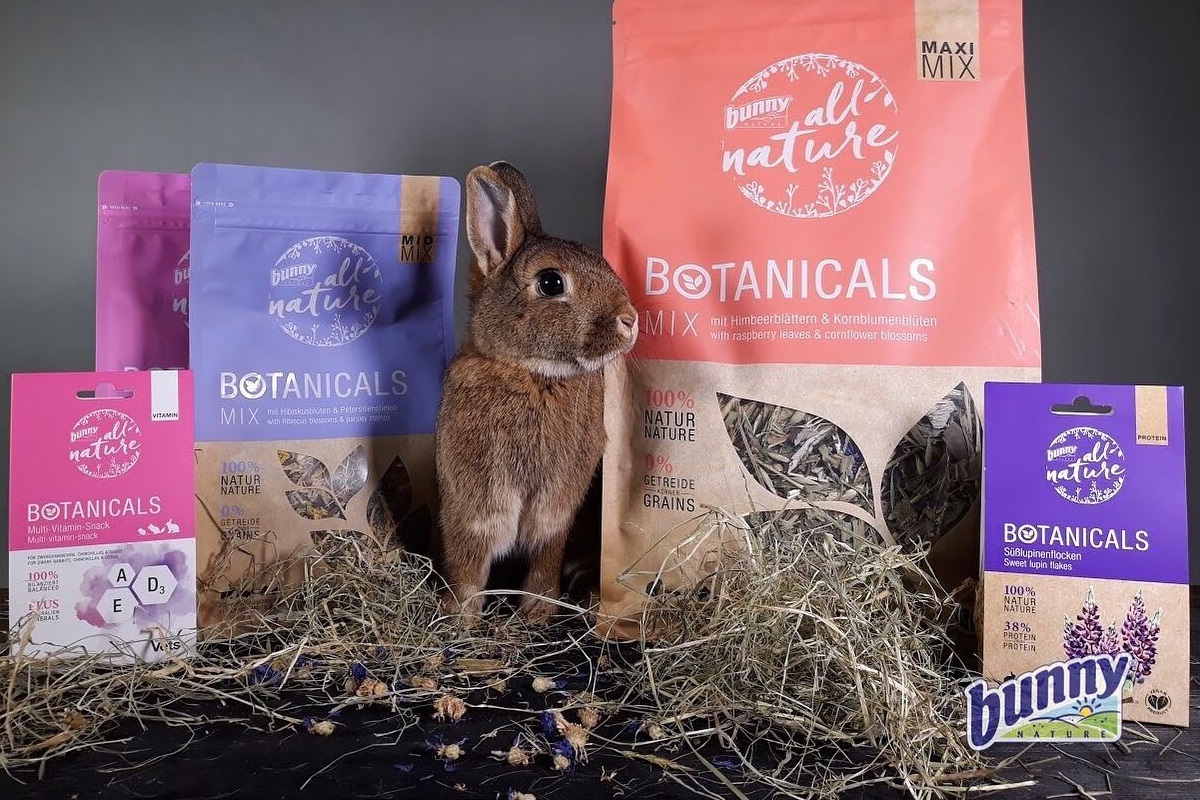
|
|
|
Tags :
What Are Health Benefits of Bunny Nature Botanicals? Rabbit Health Food South Africa , Healthy Guinea Pig Food South Africa , Chinchilla Food South Africa , Degus Food South Africa
|
|
|
|
21
OCT
2023
|
|
|
|
Pellets are a complementary addition to your rabbit, guinea pig or chinchilla's diet and can be a source of nutrition when fed correctly. Originally, pellets were developed as a cheap way to feed livestock and these earlier foods tended to be high in fat content and lacked the high quality nutrition needed to support long term health and wellbeing.
However, good-quality, high-fibre pellet diets are now more widely available. They often contain a base of grass (10-15%) with additional herbs and are supplemented with vitamins and minerals. Given properly, and in the correct amounts, high-quality pellets offer a variety of vitamins and minerals that can support good health. They should be provided as part of a balanced diet.
Bunny Nature, a manufacturer in Germany, makes pellets for small animals with unique recipe that contains an even higher content of grass, plants and herbs (50-60%) that originate from your pet's natural habitat.
Rabbits and guinea pigs need.. [More]
|
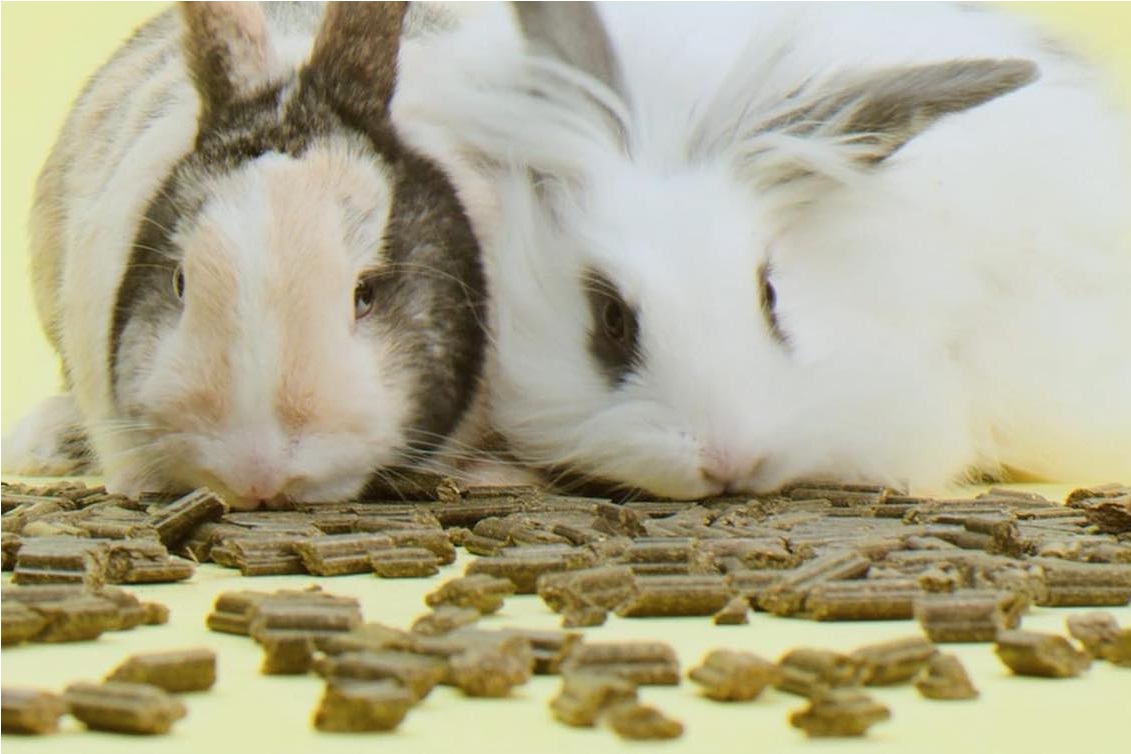
|
|
|
Tags :
What Is The Best Pellet Small Animal Food In South Africa? , What Are The Best Quality Pellets To Feed Rabbits , Guinea Pigs , Chinchillas & Degus , What Is Best Pellets To Feed Your Rabbits , Guinea Pigs
|
|
|
|
29
SEP
2019
|
|
|
|
Degus are sociable, speedy rodents have very different needs from other small furries and providing the correct diet is an essential part of keeping them healthy and happy.
In the wild, degus – who are native to northern and central Chile and live high up in the Andes mountain range – survive on grass and other green vegetation, bark and seeds. In fact, compared to other rodents, degus need to consume large amounts of fibre – at Burgess, they refer to them as ‘fibrevores’.
That’s why hay should make up a large part of their diet. Each day, you need to provide a minimum of their body size in high quality feeding hay to enable their digestive systems to function properly. Chomping on plenty of fresh, tasty hay will also help your degus’ dental health by keeping their continuously growing teeth at the correct length and shape.
DID YOU KNOW?
Wild degus live in groups of up to 100, where they dig complex burrows to .. [More]
|
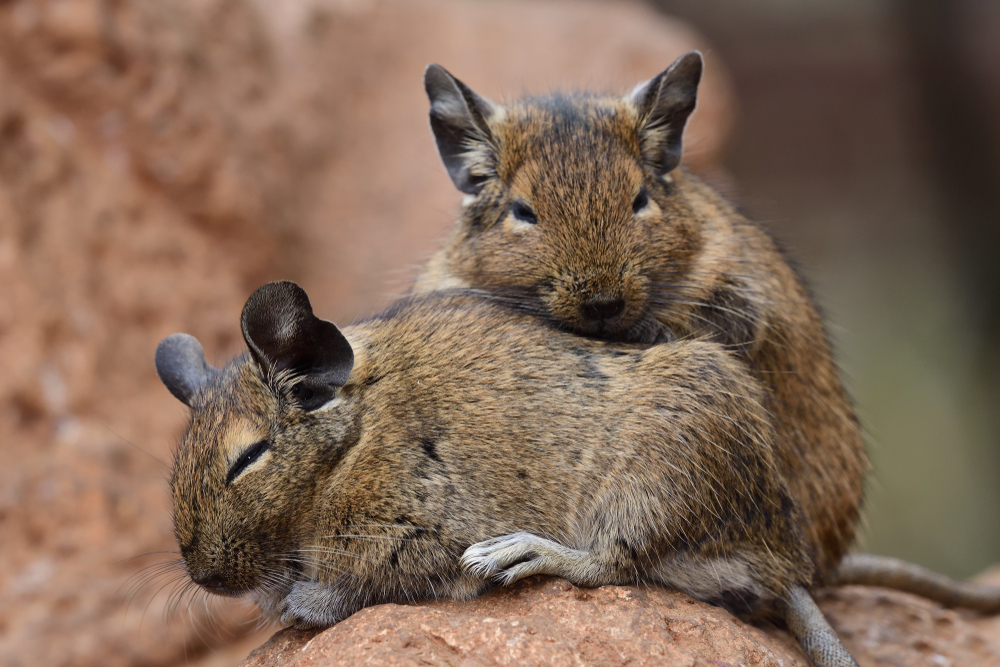
|
|
|
Tags :
Take A Closer Look At Your Degus Diet South Africa , Degus Food South Africa
|
|
|
|
19
MAY
2018
|
|
|
|
There are cat people and there are dog people – but there are also some who believe that small pets are where it’s at. Whether you cherish your chinchillas, have a passion for bunnies, adore guinea pigs, or have a soft spot for rats, hamsters, gerbils or degus, as a committed and responsible owner you want your small furries have the best life they can. Building a closer bond with your little pets will enhance and enrich your relationship with them.
A great way to build this special bond is by hand-feeding. This is something that will take time and patience, but once your small pal happily accepts a tasty treat from your hand, is incredibly rewarding. The key is to take things slowly, so that your little chums learn to associate you with good things and begin to place their trust in you.
Am I in danger?
Small pets are prey animals, which means they think anything approaching is a potential predator – even you. Don’t loom over them (as a pred.. [More]
|
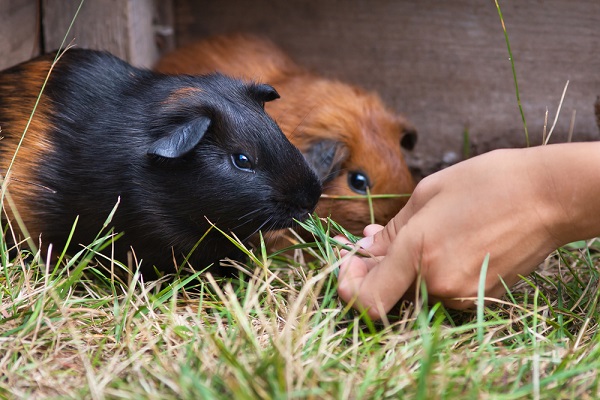
|
|
|
Tags :
Bonding With Your Small Pets , Guinea Pigs , Rabbits , Hamsters , Chinchillas , Degus , Rats
|
|
|
|
26
NOV
2017
|
|
|
|
Looking for smart and sociable small furries who love to interact with humans and provide hours of entertainment in daylight hours with their endless energy? Then you’ll find degus an absolute delight!
The degu is a small rodent that is native to Chile. In the wild, these supremely social animals live in groups of up to 100, where they dig complex burrows to hide from predators, complete with nests and food stores.
Unlike many small furries, degus are diurnal, which means they are active during the day. These lively little creatures, which look rather like large gerbils, love human interaction and will be happy living in a busy home where there’s plenty going on for them to keep a watchful eye on.
In Good Company
The first rule when keeping degus is never to have just one. These small pets need the company of at least one other degu chum (ideally from the same litter) or they will feel vulnerable and depressed, which will have a detrimental eff.. [More]
|
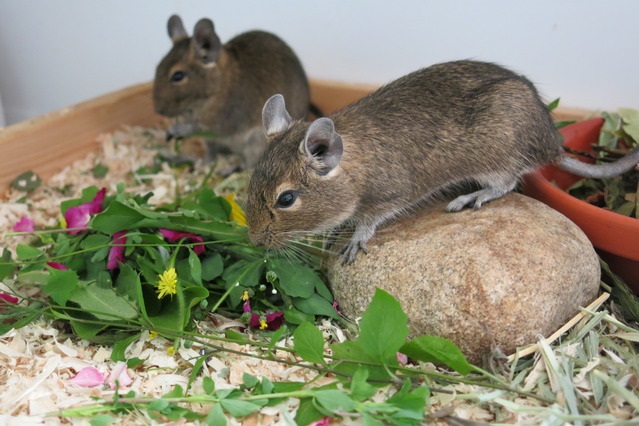
|
|
|
Tags :
Why Degus Are Becoming Popular Pets in South Africa , Degus Food South Africa
|
|
|
|
19
MAR
2017
|
|
|
|
Degus are not common household pets so there is a misconception that they are hard to look after, or they have special dietary needs. This could not be further from the truth, degus are very easy to care for and feed.
The only special consideration revolves around their susceptibility to health problems related to high sugar foods. Degus are very sensitive to sugar in the same way humans are with diabetes. Sugary foods should be avoided. But with some care on your part, it’s not hard to make sure they are receiving a healthy balance of nutrients from their food.
The degu diet in the wild consists of grasses, seeds and roots. It is nutrient poor so they spend a great deal of time foraging and eating. Degus need to keep their digestive systems busy with a mix of two kinds of fibre moving through their gut at all times (these types of fibre are called digestible fibre and indigestible fibre).
The majority of the degus diet should be high in indigestib.. [More]
|
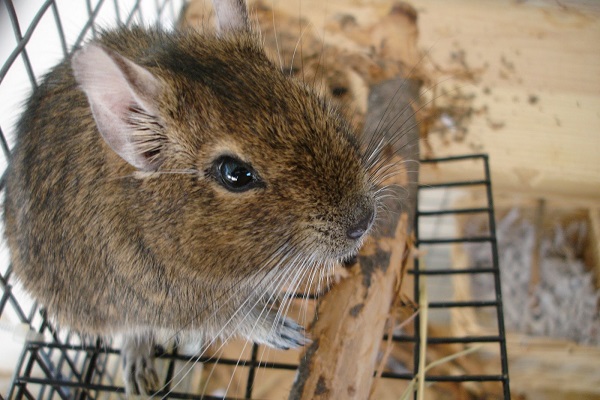
|
|
|
Tags :
Degus Need A High Fibre Diet South Africa , Feeding Your Degus Healthy Food South Africa , What Do Degus Eat South Africa , Degus Food South Africa , Degus Diet South Africa
|
|
|
|
15
JAN
2017
|
|
|
|
Want to know why your degus chatters or thumps, and why they prefer dust baths to water baths? Here’s our quick guide to understanding degus behaviour…
Burrowing
In the wild, degus live partly above ground and partly underground, creating tunnels to cool down in during the summer and to stash food away in the winter – even organising themselves into digging chains to make the job easier! Encourage this behaviour at home by adding a thick layer of soft materials or soil to the bottom of their cage so there’s plenty of burrowing opportunities. Degus can often be found hiding food, and covering and uncovering it – but it’s not unusual for them to forget where they’ve hidden it too, so keep an eye on their favourite spots if they are allowed loose in your home!
Thumping
Tail wagging is sometimes used by females to show they are ready to breed and by some males to show off! Tail drumming can also be used as an alarm call to .. [More]
|
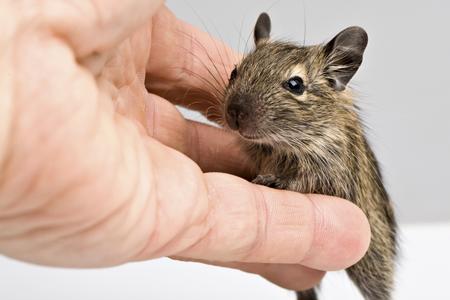
|
|
|
Tags :
Understanding Your Degu , Degus South Africa
|
|
|
|
|
|
Category List
|
|
|
|
|
|
Archive List
|
2025 2023 2022 2021 2020 2019 2018 2017 2016 2015 2014 |
|
|